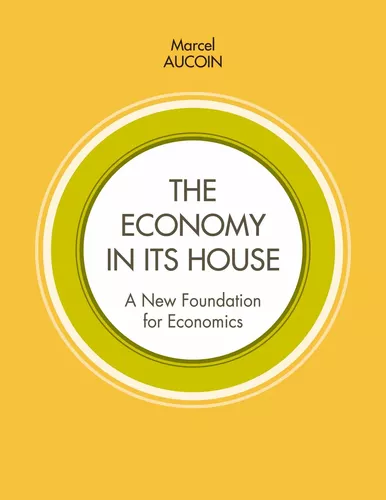Skip to the end of the images gallery Nav bascule
Skip to the beginning of the images gallery Nav bascule

The economy in its house
A new foundation for economics
Couverture souple
444 pages
ISBN: 9782322138746
Éditeur : Books on Demand
Date de parution : 23.10.2019
Langue: anglais
Impression couleurs: non
19,90 €
TVA incluse / Envoi en sus
Votre propre livre !
Devenez auteur avec BoD et vendez votre livre et votre ebook en librairie.
En savoir plusThe title - The Economy in its House - echoes Xenophon's book, Oeconomicus, which focuses on the relationship of a house with its environment rather than on trade. It also makes reference to a question from Socrates: "What is a house?". It is by striving to explore the relationships and questions, reflectig the conditions of our time, that we have concluded that the economy is in its house - and that changes everything. Indeed this leads us to establish a fiundation - new but grafted onto ancient roots - for economics.
By integrating into our theory the unpredictable environment, we provide economists with a framework to address the multiple issues that arise not only in our common home, the Earth, but also to all other houses. Our model is based on the hypothesis of the random nature of the economy, which brings us closer to modern physics and its methods.
On these pillars, our model abstracts economic agents and focuses attention on the interconnected constituents of the house, both their mutual statistical relationships, and those they have with the environment. The covariance matrix that retraces such relationships indicates how the environment disrupts, on average, each constituent during a period. This gives the possibility to explore the destinies of the houses in the short, middle or long run, through crises and changing perspectives of ruin. It makes it possible to identify three essential variables: the growth factor, the growth energy and finally the prices' root, which is also the weight of the unit of account and an anti-ruin coefficient.
One of the characteristics of modern houses is that, among their constituents, positive covariances outweigh negative covariances. Hence their growth: we explore its links with the reduction of inequalities, and its pathologies: pollution and depletion of resources. We show how we can fight against crises and inequalities through greater solidarity.
We show that one can model any house by use of a miniature house - its essence - with two components (the hearth and the roof) and three guiding parameters: exposure to hazards, security, and performance. With these guides, one expresses all the macroeconomic variables relative to a house. These are preserved by passing from a house - whatever its importance - to its essence. The wealth of the results obtained shows that the path open must allow economists to go farther in their work while also enabling a broader public to better understand what the economy is.
By integrating into our theory the unpredictable environment, we provide economists with a framework to address the multiple issues that arise not only in our common home, the Earth, but also to all other houses. Our model is based on the hypothesis of the random nature of the economy, which brings us closer to modern physics and its methods.
On these pillars, our model abstracts economic agents and focuses attention on the interconnected constituents of the house, both their mutual statistical relationships, and those they have with the environment. The covariance matrix that retraces such relationships indicates how the environment disrupts, on average, each constituent during a period. This gives the possibility to explore the destinies of the houses in the short, middle or long run, through crises and changing perspectives of ruin. It makes it possible to identify three essential variables: the growth factor, the growth energy and finally the prices' root, which is also the weight of the unit of account and an anti-ruin coefficient.
One of the characteristics of modern houses is that, among their constituents, positive covariances outweigh negative covariances. Hence their growth: we explore its links with the reduction of inequalities, and its pathologies: pollution and depletion of resources. We show how we can fight against crises and inequalities through greater solidarity.
We show that one can model any house by use of a miniature house - its essence - with two components (the hearth and the roof) and three guiding parameters: exposure to hazards, security, and performance. With these guides, one expresses all the macroeconomic variables relative to a house. These are preserved by passing from a house - whatever its importance - to its essence. The wealth of the results obtained shows that the path open must allow economists to go farther in their work while also enabling a broader public to better understand what the economy is.
Rédigez votre propre commentaire








Il n'y a pour le moment pas de critique presse.